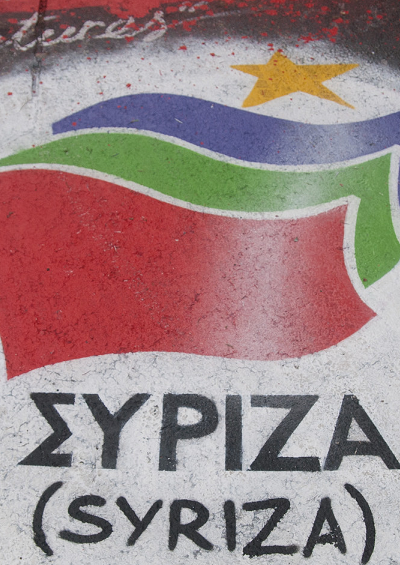The World’s Five Top Elections in 2015
Which countries’ elections are most worth watching — and why?
January 23, 2015

#1: Greece
Can modern Greek democracy survive the combined effects of years of extraordinary fiscal mismanagement, a devastating recession and a sudden day of reckoning via structural reforms?
That’s the question the world is asking when Greece heads to the polls this coming weekend, beyond narrower questions of what might happen in the next six months.
Newcomer “Syriza” – a party with moderating rhetoric, yet still an unknown quantity – has led the polling average since November 2013, more than a year before snap elections were called.
Mr. Tsipras and company could shake things up – for good or ill – in the country whose ancestors gave us the word democracy.
On the other hand, modern Greek democracy is just 40 years old. Plato might forecast a turn to a less participatory form of the Kyklos (the ancient cycle of governance forms) is about due.
The rise of the neo-Nazi “Golden Dawn” as a potent force in Greek politics offers that grim path. After all, the ancient Greeks also formalized the concepts of “oligarchy,” “aristocracy” and “tyranny.”
Stay tuned as well for how the Greek results – and subsequent reactions in Brussels and Berlin – play out in Spain, which will hold elections toward the other end of the year and faces somewhat similar circumstances.
#2: United Kingdom
Traditional late 20th century European democracy is taking a beating all over the map. Is the fabled Westminster System – at least as it has traditionally existed in its tripartite form since the arrival of universal male suffrage – finished in Westminster itself?
UKIP, the SNP and other parties outside the Big Three make another coalition government of some kind almost a certainty after May – likely with huge effects for the British populace and their place within the European Union.
With the de facto splintering off of Scotland and other elements of devolution elsewhere, ultimately what is at stake here is Britain’s own identity, such as the world has come to know it over the past century and more.
#3: Nigeria
Should a young democracy re-elect a civilian president from the same party that has won every election since 1998?
Should it do so despite his record of extreme incompetence in handling an insurgency that has now seized more territory than ISIS controls in Africa’s most populous nation and largest economy?
What if the alternative choice is a former military dictator and perennial also-ran?
These are the basic questions facing Nigerians in February’s election that will see once-accidental President Goodluck Jonathan of the People’s Democratic Party (PDP) face off against Gen. Muhammadu Buhari at the head of an increasingly powerful opposition coalition and amid plunging oil prices.
The country’s size and economic importance, as well as the alarming rise of Boko Haram, make this election a must-watch for the rest of the world.
#4: Mexico
Will Mexico’s capital city, the insulated Federal District, finally be shaken out of its slumber by a growing protest movement and other reactions to the total capture of Mexican state and local government by the cartels?
Congress is up for another election in June, but without a sea change in the Peña Nieto administration, few expect serious policy shifts at home, whatever the outcome of the parliamentary elections.
Still, if the past 25 years of world history are any guide, it is never safe to assume there will not be a spontaneous mass uprising that forces a revolution in governance, when people get fed up enough. Mexicans are certainly very close to this point of profound discomfort and frustration with its politicians.
Conclusion / #5
Democratic governance faces pivot points in national elections scheduled in Europe, Africa and the Americas in 2015.
However, amid all the dire news, one bright spot has already shone like a beacon in 2015, from Asia.
Earlier in January, Sri Lanka unexpectedly voted out Mahinda Rajapaksa, its strongman president, in early elections, and promoted his former health minister, Maithripala Sirisena, to the top post instead.
Rajapaksa departed the next morning after failing to rally support for a coup. Positive change at the ballot box remains possible.
Takeaways
Mr. Tsipras and company could shake things up in the country whose ancestors gave us the word democracy.
The rise of the neo-Nazi “Golden Dawn” as a potent force in Greek politics offers a grim path.
Traditional late 20th century European democracy is taking a beating all over the map.
Democratic governance faces pivot points in national elections scheduled in Europe, Africa and the Americas in 2015.
2015 brings elections to watch in Greece, the UK, Nigeria and Mexico.
Read previous

Global Governance
The Case for Syriza
January 23, 2015
